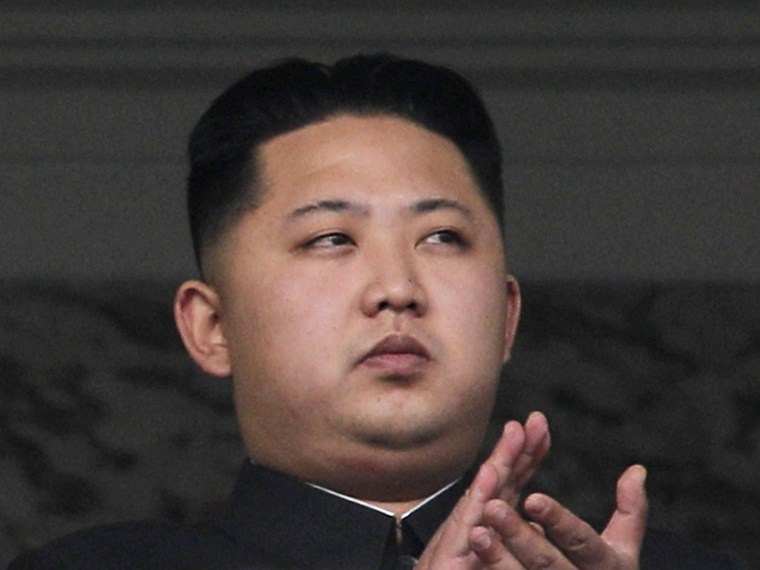With tensions rising over young North Korean leader Kim Jong Un's bellicose rhetoric and nuclear threats, U.S. Ambassador to the United Nations Susan Rice told NBC Chief Foreign Affairs Correspondent Andrea Mitchell Friday that longtime North Korean ally China is knows that "Kim Jong Un has gone too far."
"What's interesting about China's stance now is that you can tell by the nature of their statements, by the nature of their actions, that unlike in the past, they also are very much of the view that Kim Jong Un has gone too far and that this now is a situation that has the potential to directly threaten their interests in the region, both economic and security," Rice told Mitchell in an interview at the Newsweek/Daily Beast Women in the World Summit at New York City's Lincoln Center.
The United Nations is relying on China to rein in the young North Korean leader, who since launching the country's third nuclear test in February--the first under his leadership--has tried to ratchet up the fear of nuclear war with the west. According to U.S. intelligence, North Korea moved one or two medium-range missiles to mobile launchers on the country's east coast, prompting South Korea to send destroyers to both its coasts. The Pentagon also sent two missile-defense-capable U.S. Navy destroyers to the western Pacific, and announced Wednesday that it would deploy a land-based missile defense system to Guam. Pyongyang warned foreign embassies Friday that it would not be able to guarantee the security of foreign diplomatic corps "in the event of conflict" past April 10 (the significance of the date is unknown).
As North Korea's most formidable ally, China is a crucial signatory on any U.N. resolution aimed at dissuading the impoverished country from further strengthening its nuclear program at the expense of its people, and from launching any attack on the west. In an interview with Mitchell on March 7, 2013, after the U.N. successfully persuaded China to sign on to one of the toughest sanctions regimes in the body's history on North Korea, Rice said that there were still "very real limitations" on how far China was willing to go.
On Friday, Rice said that while that Beijing recognizes the threat posed by North Korea, the regime is not using its full power to control Pyongyang. China "is implementing the sanctions that that they have agreed to, that we negotiated and passed. But clearly, with the border that they have, with the economic relationship that they have, they can do more."
"The reality is we are united, the rest of the world, in ensuring that this threat is contained," Rice said. "And Kim Jong Un and North Korea are increasingly isolated, including from China."
Rice made it clear that the U.S.'s intentions "are not belligerent." "But obviously," she said, "if need be, we'll do what it takes to defend our allies and ourselves."
During Friday's briefing, White House Press Secretary Jay Carney commented on North Korea's reported preparations to launch a missile. "We're monitoring this situation closely and we would not be surprised to see them take such an action," Carney said. "We have seen them launch missiles in the past and the United Nations Security Council has repeatedly condemned them."
Mitchell also asked Rice Friday about tensions between the U.S. Embassy in Cairo and the Egyptian government, with news that U.S. Ambassador Ann Patterson apologized to Egyptian government officials for the embassy tweeting a link to a Jon Stewart monologue that mocked Morsi.
Rice declined to comment specifically on that development, as did State Department Spokeswoman Victoria Nuland in the afternoon briefing, but Rice noted, “there have been a lot of comments out of the Egyptian government with respect to media freedom, freedom of speech, openness, that we, frankly, think are worrying.”
“The fact is that when things are going wrong, when women are being abused and attacked and raped in public squares, when satirists are unable to engage in harmless satire, those are issues of gravest concern to the United States. And we have and we will continue to speak out about that.”
Noting her personal enjoyment of Twitter, Rice warned diplomats to be “mindful of the medium,” saying, “there are some things I will not do or say on Twitter because I think it sort of cheapens the coin of the message.”
Watch Andrea Mitchell's full interview with Ambassador Susan Rice below:
